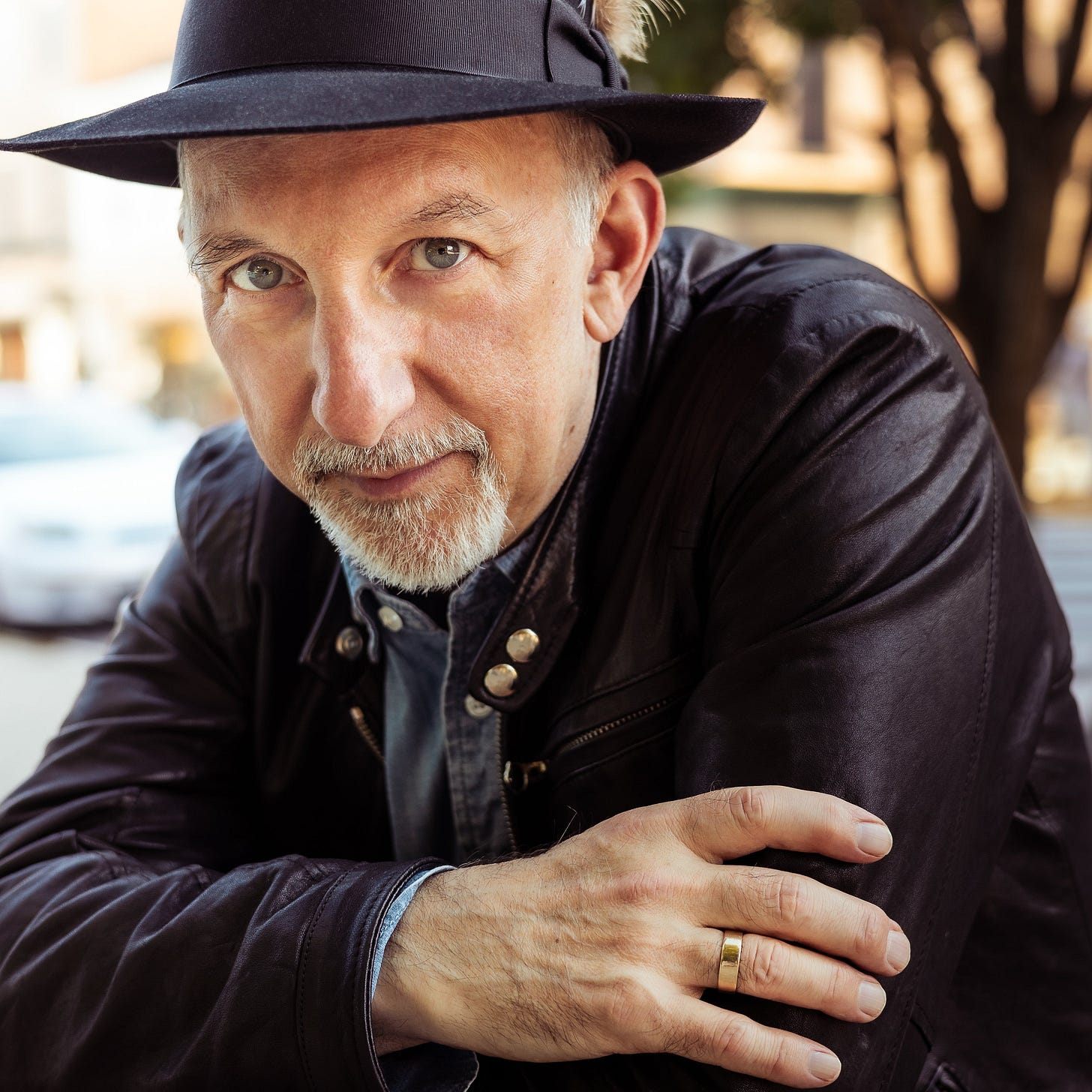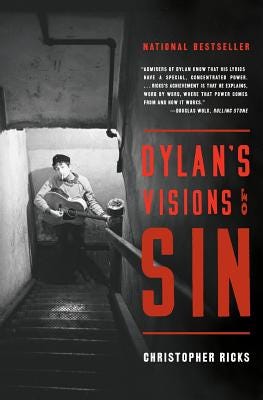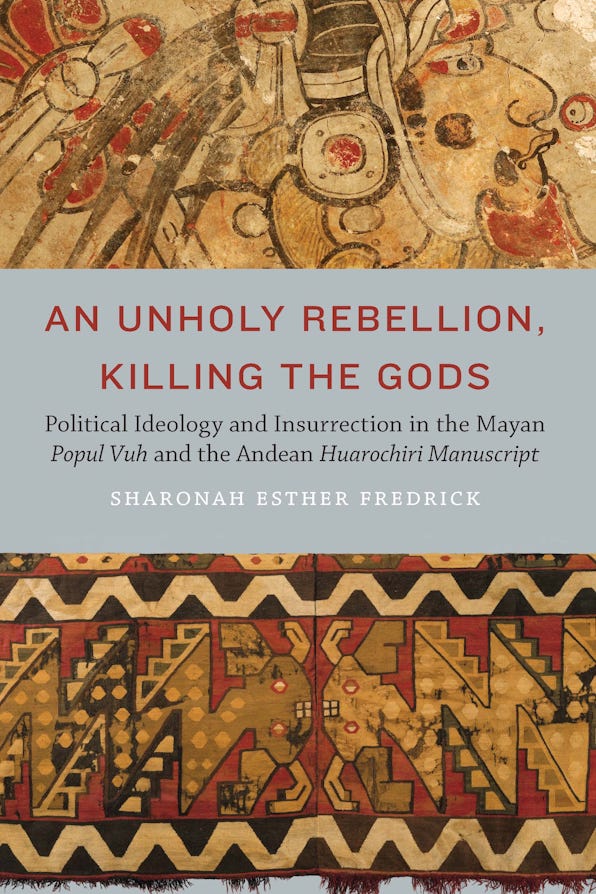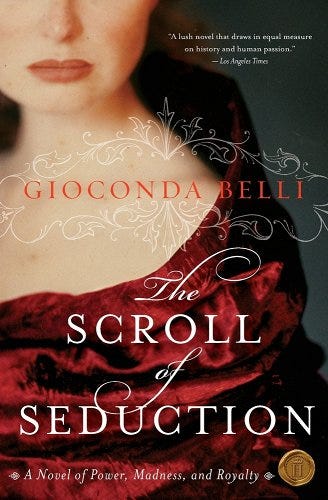CTRL ALT DECEIT
Featuring a new podcast from Owen Bennett-Jones and interviews with Seth Rogovoy and Sharonah Esther Fredrick
On Music Journalism
Seth Rogovoy is the author of three books Within You Without You: Listening to George Harrison, Bob Dylan: Prophet, Mystic, Poet, and The Essential Klezmer: A Music Lover’s Guide to Jewish Roots and Soul Music. In his most recent book, Within You Without You, Rogovoy examines George Harrison’s contributions to the musical world.
Q: Who should read Within You Without You: Listening to George Harrison?
A: As a long-time music journalist, I am used to writing about music for general audiences, and I wrote Within You Without You geared to a general readership. While I occasionally go into detail about George Harrison and the Beatles’ music, it is always in layperson’s terms, eschewing technical terminology. Casual and ardent fans of George Harrison and the Beatles are likely to find the book suggestive and enjoyable, as would anyone with more than a passing interest in the story of how music evolved beginning in the 1950s and over the following five decades.
Q: You have a Substack called Everything is Broken. What topics do you cover there and who should subscribe?
A: Everything Is Broken is devoted to my original writing, often on cultural topics including books, music, movies, and visual art, as well as my occasional observations about topics drawn from contemporary life. The title of the Substack is also the name of a Bob Dylan song, and sometimes I turn my attention toward Dylan. Everyone should give it a try and see if it works for you. It’s free, anyway.
Q: What are your favorite music books of all time and why?
A: Mystery Train: Images of America in Rock 'n' Roll Music by Greil Marcus. The beauty of this book is how Marcus unveils an entirely new way of writing about music and musical artists. I read it at a relatively young age, and I think it still influences my approach to writing about music.
How Music Works by David Byrne, in which the founder and leader of Talking Heads deconstructs music and the music business. He draws on his own deep and wide-ranging experience as an artist, theorist, recording artist, bandleader, solo performer, and independent record label executive.
Tarantula by Bob Dylan. A lot of people favor Dylan’s pseudo-memoir, Chronicles, and while I enjoy it a lot, I think Tarantula, an extended prose-poem Dylan wrote in the late 1960s, is his most Dylanesque work as an author.
Life by Keith Richards. A memoir filled with so much love for music and for his guitar, and filled with funny stories and insights. It’s where we learn that “Brenda” is Richards’s nickname for Mick Jagger. But its most memorable image is Richards sleeping with his guitar.
Dylan’s Visions of Sin by Christopher Ricks, in which this acclaimed authority on centuries of poetry explores Bob Dylan’s lyrics in the greater context of English-language poetry. I wonder if it influenced the judges who awarded Dylan the Nobel Prize for Literature. It certainly made a good case for Dylan as deserving the honor.
Q: A common topic you write about is the intersection of religion and music. What do you see as the key connection?
A: Religion and music have a centuries— or millennia-long relationship. Music has always been used as a tool to go along with worship, so there is nothing new about this at all. A lot of music explicitly is composed, performed, sung, and played as a religious expression or in a religious context. I’ve always been fascinated by the connection, especially when it’s found in places outside of conventional worship settings, such as in rock music— which I suppose could be seen as a form of worship. At least some of it.
Q: If you were on a desert island and could only bring one album and one book, what would you bring?
A: My desert-island disk is Bob Dylan’s Blood on the Tracks, largely because it includes the song “Idiot Wind,” which I find endlessly fascinating and full of passion, rage, and glory.
I am always tempted to cite the Bible as my desert-island book, as it can be read multiple times over the years and each time revealing new and overlooked themes and details. But choosing the Bible also seems something like a cop-out. So I guess my choice, at least these days, would be Franz Kafka’s Diaries, which are also endlessly fascinating and particularly inspiring to me as a writer.
Listen to Seth’s recent NBN interview where he discusses Within You Without You below:
Scholarly Sources
Sharonah Esther Fredrick teaches in the College of Charleston’s Department of Hispanic Studies. She is the Colonial Americas editor for Routledge Resources Online - The Renaissance World. She recently authored An Unholy Rebellion, Killing the Gods: Political Ideology and Insurrection in the Mayan Popul Vuh and the Andean Huarochiri Manuscript, which takes a multidisciplinary approach to Mayan and Andean epics.
Q: What are you reading right now?
A: Right now I am reading a classic of South American Literature: Tradiciones Agentinas by the author Pastor Servando Obligado. It is filled with legends and myths relating to Argentina, from the remote past to the 19th century. I think that given today's current state of murky, polarized politics, myths and legends can tell us more about a country's psychology than any politician's speech ever will.
Q: What is your favorite book or essay to assign or give to people and why?
A: My favorite book to assign is one by the great female Nicaraguan writer Gioconda Belli, who is now living in exile. The book is called The Scroll of Seduction: A Novel of Power, Madness, and Royalty Its theme is the stereotyping of strong women as "insane", using the character of a 16th century Spanish Princess Juana, who was unfairly described as "crazy" because her political ideas did not jibe with those of the time. It jumps back and forth between Juana's time and the early 2000s, where women are still stereotyped and excluded from power. It is a magnificent, sexy, thought-provoking book. I've read it in both English and Spanish, and my students, both English and Spanish speaking-have found it fascinating.
Q: Is there a book you read as a student that had a particularly profound impact on your trajectory as a scholar?
A: The book that I read as a student that had the most profound impact on me was the French philosopher Albert Camus' The Rebel. It shows a masterful understanding of human beings and history, and how we've gotten to the uncomfortable place that we are in now. It also offers hope for how we can get out of this mess!
Q: Which deceased writer would you most like to meet and why?
A: The deceased writer that I would most love to meet is Shakespeare. The complexity of his characters is very attractive. Of course he was a man of his time, and as such had plenty of prejudices— but we all do. Shakespeare was far more conscious of his prejudices and questioned them in his plays.
Q: What's the best book you've read in the past year?
A: The best book that I've read in the past year is Kathleen Alcala's The Flower in the Skull. She combines a stunning writing style with really fascinating research into the American Southwest and all the folks who live there.
Q: Have you seen any TV series that left an impression on you recently?
A: One Showtime series that I've seen recently— although it's not recent!— is The Borgias, with Jeremy Irons in the starring role. It's extraordinarily interesting because it plumbs the depth of all its characters, who were some of the most twisted people in the history of politics. Kind of relevant to today, on all sides of the political spectrum.
Q: What do you plan on reading next?
A: Next up I want to read Derek Walcott's The Fortunate Traveler. Walcott is a superb Caribbean writer who bridges many worlds: Afro-Caribbean culture, British culture, and much more. Plus, his writing style is simply a pleasure; it's like hearing music that you love.
Q: Who should read An Unholy Rebellion, Killing the Gods?
A: Anybody interested in history, mythology, Latin America, Native American civilizations, archaeology, literature, astronomy (yup, I have archeoastronomy in there a lot, a passion of mine), but most importantly: anybody who is sick and tired of being told what to do constantly and who feels beaten down by life. That's because the main theme, which follows mythical heroes who rid the world of human sacrifice, is a philosophical journey that we all go through: learning to say NO to evil gods, whether those gods are politicians, abusive supervisors, or school bullies. Its themes are universal; readers should not be put off by thinking it's "exotic". It's totally, utterly human.
Listen to Sharonah’s NBN interview about this book below:
CTRL ALT DECEIT
NBN host Owen Bennett-Jones has a new podcast out called CTRL ALT DECEIT: Democracy in Danger. Co-presented with former CNN host Nina Dos Santos, the two journalists look at various challenges to Western democracies from within and abroad. The first several episodes analyze Elon Musk, the use of lawfare to shut down journalists and others, the hackability of US voting machines, and explicitly anti-democratic voices in American politics. Beyond American politics, Bennett-Jones and Dos Santos examine the contentious splits in the exiled, Russian opposition.
CTRL ALT DECEIT will appeal to anyone thinking about the big geopolitical, ideological, and technical issues of the day. For Bennett-Jones, creating the series made him aware of how Western democracies are becoming more isolated. Global opinion of the West is more critical and suspicious than ever before. With algorithms and “post truth” values challenging the basic necessity of informed electorates, the vulnerabilities of democratic political systems can no longer be taken for granted.
CTRL ALT DECEIT is produced by Democratys, a UK charity committed to exposing interference in democratic institutions and inspiring debate and engagement.
For associated reading see Peter Turchin’s End Times: Elites, Counter-Elites and the Path of Political Disintegration.









